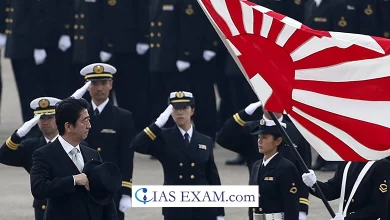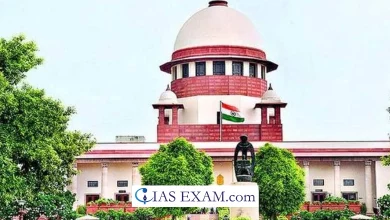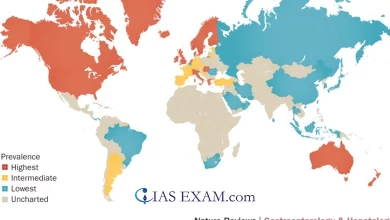Daily Current Affairs for UPSC
Section 66A of the Information Technology Act
Topic- Governance [GS Paper-2]
Context- Recently the Supreme Court of India has ordered States and their police forces to stop prosecuting free speech on social media under Section 66A of the Information Technology Act which was declared unconstitutional by the court in a judgment seven years ago.
Key Highlights
- Looking at the law enforcement agencies who continue to book people under Section 66A of the Information Technology Act, 2000, which has been struck down, the Supreme Court has directed that no person should be prosecuted under it anymore.
- The SC found it both distressing and terrible that the police had continued to pick out people and prosecute them under the stringent Section regardless of the fact that the highest court in the country had struck down the law as vague and chilling.
- A Bench led by Chief Justice of India has stated that all Directors General of Police as well as Home Secretaries of the States and competent officers in Union Territories need to instruct their entire police force in their respective States or Union Territories not to register any complaint of crime with respect to alleged violation of Section 66A.
- The court also clarified that this direction would apply only to a charge under Section 66A and not extend to other offences in a case.
- The court, in order to make sure that no trace of doubt was left that Section 66A had been wiped off the statute book, directed that law books should contain a short note that the provision was struck down by the Supreme Court as violative of the Constitution.
- Earlier in March 2015, the Supreme Court had found the police powers of Section 66A too wide with scant respect for individual liberty and free expression on the Internet.
- Before coming to the judgement the Chief Justice of India examined the list of such cases provided by the Centre and confirmed that a number of prosecutions under Section 66A were indeed pending across various parts of the country.
- According to the apex court, such criminal proceedings, are directly in the teeth of the directions issued by this court in Shreya Singhal judgment, said in the order, annulling all prosecutions under Section 66A.
Earlier Provisions under Section 66A
- Section 66A of the IT Act empowered police to make arrests over what policemen, in terms of their subjective discretion, could construe as offensive or menacing or for the purposes of causing annoyance, inconvenience, etc.
- It made the punishment for sending messages through a computer or any other communication device like a mobile phone or a tablet, and a conviction could fetch a maximum of three years in jail.
Issues related to Section 66A
- The court observed that the weakness of Section 66A rely in the fact that it had created an offence on the basis of undefined actions such as causing inconvenience, danger, obstruction and insult, which do not fall among the exceptions granted under Article 19 of the Constitution, that guarantees the freedom of speech.
- The court also noticed that the challenge was to identify where to draw the line. Previously, it has been drawn at incitement while terms like obstruction and insult remain subjective.
- Also the court had noted that Section 66A did not have procedural safeguards like other sections of the law with similar targets, such as the need to obtain the concurrence of the Centre before action can be taken.
- The Court did not strike down two other provisions i.e. sections 69A and 79 of the IT Act and stated that they can remain enforced with certain restrictions. Section 69A gives power to issue directions to block public access of any information through any computer resource and Section 79 provides for exemption from liability of intermediary in certain cases.
- Section 66A was acting as a contrary to both Articles 19 i.e. free speech and 21 i.e. right to life of the Constitution.
Previous Judgements
- In 2015 a petition was filed by law student Shreya Singhal, who had highlighted cases of young people being arrested and charged under the ambiguous provision for their social media posts.
- In this case the court had stated that “Section 66A is cast so widely that virtually any opinion on any subject would be covered by it, as any serious opinion dissenting with the mores of the day would be caught within its net. Such is the reach of the Section and if it is to withstand the test of constitutionality, the chilling effect on free speech would be total.”
- Previously section 66A had prescribed three years’ imprisonment if a social media message caused annoyance or was found grossly offensive; and this provision was concluded to be vague and worded arbitrarily.
- Three years after the judgment of 2015, an NGO, People’s Union for Civil Liberties had drawn the court’s attention to the violations.
- The Centre had maintained a distance by filing an affidavit stating that “prevention, detection, investigation and prosecution of crimes and capacity-building of the police are primarily the responsibility of the States”.
- But in between the period the court had asked the Centre to submit a tabulated list of the cases in which people were booked under Section 66A.





.png)



